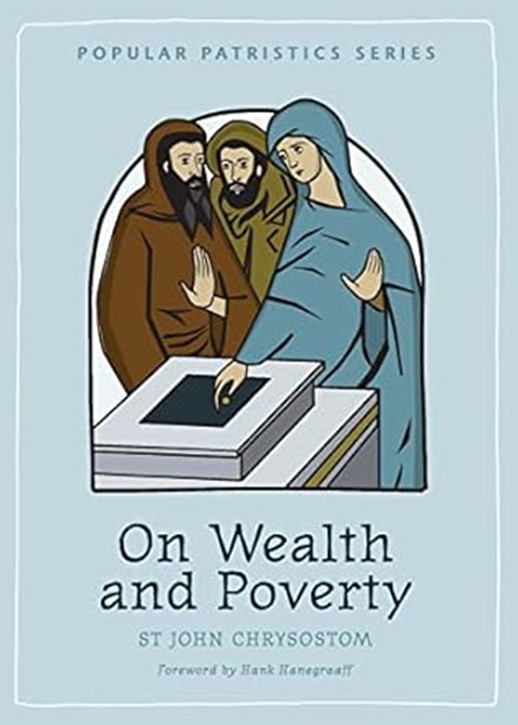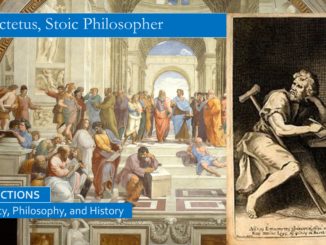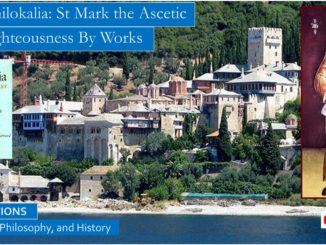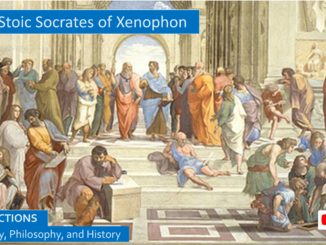
Why would a loving and Almighty God permit earthquakes and tsunamis that kill hundreds and thousands of the faithful?
Why would God permit an earthquake to destroy most of Lisbon in 1755 when the Catholic Mass is being celebrated?
Are natural disasters random events? Or are they punishments for our sins, or the sins of our fathers?
Is our world truly the best of all possible worlds?
When was the word theodicy, or the study of why God permits suffering from natural disasters in this world, originally coined? Was this a question asked by early Christians and Stoic philosophers?
YouTube video for this blog: https://youtu.be/e7FaAqnOwto
EARTHQUAKES IN THE ANCIENT WORLD AND DURING THE ENLIGHTENMENT
St John Chrysostom, in his sermons on the Parable of Lazarus and the Rich Man, veered off topic and discussed the recent severe earthquake that struck his flock in Antioch, Syria. Dr Wikipedia discusses several earthquakes in Syria and Turkey in the first five centuries AD, but does not focus on this earthquake in particular, since severe earthquakes are quite common in the Middle East. What is significant about his sermons is that these earthquakes do not cause him or his flock to question the existence of God, nor do they ask the question so many moderns ask: If there is an all-powerful, omnipotent God, why does he permit suffering?


Theodicy is the term that Gottfried Leibniz coined in 1710 to describe this so-called problem of how an Almighty God permits suffering in the world.[1] The famed textual critic Bart Ehrman describes how he lost his faith over his concern about Theodicy in his book, On God’s Problem: Why We Suffer. As he points out, different books of the Bible answer this question differently. Many of the prophets, like St John Chrysostom, proclaim that natural disasters are often punishment meted out because we do not take care of the widows, orphans, and the poor.
On the other hand, in the Book of Job God does not give a reason for Job’s suffering, instead asking if Job can fathom the purposes of any of God’s inscrutable actions. why God permits the actions of God. Although I often do not agree with Bart Ehrman’s conclusions, I rarely disagree with the evidence he cites in his works. Another recent best seller is by Rabbi Harold Kushner: When Bad Things Happen to Good People. We plan to reflect on both these works sometime in 2025.
The natural disaster that challenged the faith of many in Europe and in modern times was the devastating Lisbon earthquake of 1755. The city had been struck by earthquakes before, but nothing this destructive. The 1755 earthquake nearly completely destroyed Lisbon and the surrounding settlements. This disaster struck on All Saints’ Day in the morning when the faithful were attending mass. The earthquake opened a sixteen-foot fissure through Lisbon, followed forty minutes later by a massive tsunami wave, knocking over candles lit celebrating a religious holiday, igniting a firestorm. Out of a population of 200,000, as many as 40,000 were killed, or one out of five residents.[2]
In the aftermath of this tragedy, the French Enlightenment Philosopher Voltaire ridiculed Leibniz’ argument in Theodicy that our world was the best of all possible worlds. How can this be? How could an Almighty and Compassionate God permit such a tragedy to strike?
In Voltaire’s Candide, his philosophical novelette, the impressionable naïve Candide at first adopts the Leibnizian optimism of his Professor Pangloss but becomes more and more skeptical and jaded as he experiences many misadventures and misfortunes across the countries of Europe. In these misadventures, Voltaire ridicules religion, clergy, philosophy, philosophers, governments, and armies.[3]
Candide’s ship is tossed about in the Lisbon harbor before he lands, experiencing the devastating earthquake. After the ship sank, Candide and Professor Pangloss walked through what was left of the streets of Lisbon. Voltaire writes: “They had scarcely set foot in the town when they felt the earth tremble under their feet; the sea rose in foaming masses in the port and smashed the ships which rode at anchor. Whirlwinds of flame and ashes covered the streets and squares, the houses collapsed, the roofs were thrown upon their foundations, and foundations were scattered; thirty thousand inhabitants of every age and both sexes were crushed under the ruins.”
Voltaire continues: “Professor Pangloss consoled them by assuring them that things could not be otherwise. Said he, ‘For all this is for the best; for if there is a volcano at Lisbon, it cannot be anywhere else; for it is impossible that things should not be where they are; for all is well.’”
“A dark man who experienced the Inquisition” “politely said:” “Apparently, you do not believe in original sin; for if everything is for the best, there was neither fall nor punishment.” “I most humbly beg your excellency’s pardon,” replied Pangloss still more politely, “for the fall of man and the curse necessarily entered into the best of all possible worlds.”[4]
Voltaire, in his poem on the Lisbon Earthquake, asks:
“Why must earthquakes destroy the human race?
Will you thus limit the eternal mind?
Should not our god to mercy be inclined?
Cannot then God direct all nature’s course?”
Voltaire accuses God:
“God condemns the sons of earth woe,
Untouched with pity for the human race,
Indifferent, both from love and anger free.”
Voltaire accuses Leibniz:
“Leibniz can’t tell me from what secret cause,
In a world governed by the wisest laws,
Lasting disorders, woes that never end,
With our vain pleasures real sufferings blend;
Why do the virtuous and vicious share these ills?”[5]
Leibniz passed away soon after writing his Theodicy, many decades before Voltaire wrote Candide.[6] The moral philosophy of Immanuel Kant, which seeks to carve out a place for faith amidst reason, follows in the footsteps of Leibniz. Hopefully we can reflect on Kant later in 2025. Leibniz summarizes his views in his Monadology, and we reference the sections in his Theodicy, if you are interested.
Leibniz: Theodicy
53. “Now, as in the Ideas of God there is an infinite number of possible universes, and as only one of them can be actual, there must be a sufficient reason for the choice of God, which leads Him to decide upon one rather than another.” (Theod. 8, 10, 44, 173, 196 sqq., 225, 414-416.) →
- “And this reason can be found only in the fitness [convenance], or in the degrees of perfection, that these worlds possess, since each possible thing has the right to aspire to existence in proportion to the amount of perfection it contains in germ, “or the beginning. (Theod. 74, 167, 350, 201, 130, 352, 345 sqq., 354.) →
- “Thus, the actual existence of the best that wisdom makes known to God is due to this, that His goodness makes Him choose it, and His power makes Him produce it.” (Theod. 8, 78, 80, 84, 119, 204, 206, 208. Abrege, Object. 1 and 8.) [7]
Leibniz also summarizes his position in an appendix of his Theodicy:
Argument: “Whoever makes things in which there is evil, and which could have been made without any evil, or need not have been made at all, does not choose the best course.”
Response by Leibniz to this argument: “God made a world wherein there is evil; a world, I say, which could have been made without any evil or which need not have been made at all. Therefore, God did not choose the best course.”
“I admit” that “one must confess that there is evil in this world which God has made, and that it would have been possible to make a world without evil or even not to create any world, since its creation depended upon the free will of God.” However, “the best course is not always” “avoiding evil, since it is possible that the evil may be accompanied by a greater good. For example, the general of an army will prefer a great victory with a slight wound to a state of affairs without wound and without victory.”
Leibniz notes that St Augustine has “said a hundred times that God permitted evil to derive from it a good, that is to say, a greater good; and St Thomas Aquinas says (in libr. 2, Sent. Dist. 32, qu. 1, art. 1) that the permission of evil tends towards the good of the universe. I have shown that among older writers the fall of Adam was termed felix culpa, a fortunate sin, because it had been expiated with immense benefit by the incarnation of the Son of God: for he gave to the universe something nobler than anything there would otherwise have been amongst created beings.”
We should note that some early Church Fathers, in particular St Maximus the Confessor, speculate that the Incarnation of the Son of God was planned from the beginning of the universe, regardless of whether Adam committed the Original Sin of falling to Satan’s subtle temptation.
St Maximus the Confessor, Roman Catholic and Orthodox Saint
https://seekingvirtueandwisdom.com/st-maximus-the-confessor-blog-1/
St Maximus the Confessor, Commentary on the Lords Prayer
https://seekingvirtueandwisdom.com/st-maximus-the-confessor-blog-2-centuries-of-theology-and-lords-prayer/
St Maximus the Confessor, Commentary on the Lord’s Prayer, Roman Catholic and Orthodox Saint
https://youtu.be/IvpMoKs72Us
Leibniz continues: Indeed, “a world with evil may be better than a world without evil. But I have gone still further in the work, and have even shown that this universe must be indeed better than every other possible universe.”[8]
SCIENCE SUGGESTS THAT PERHAPS EARTH IS THE BEST POSSIBLE WORLD
Centuries later, science suggests to us that perhaps our world is the best possible world in our galaxy. Mankind in Voltaire’s day had recently realized that the Earth revolves around the sun, but had no concept of the infinite stretches of the cosmos beyond the stars visible in the night sky. Since then, scientists discovered that our solar system is rotating around the center of the Milky Way Galaxy, and estimate that there may be literally trillions of galaxies in the universe. We have also discovered that much of the universe is incredibly hostile to life, and that there may be only a handful of planets in our galaxy that harbor any life at all, let alone intelligent life.
Not only that, but science has discovered that when a planet, like Mars, becomes a dead planet, with no volcanoes, and with no tectonic plates moving on the surface of the planet, meaning no earthquakes, then it becomes a dead planet incapable of sustaining life. When Mars’ molten core hardened, halting volcanic activity, becoming a geologically quiet planet, it then lost its magnetic field. With no magnetic field, solar radiation slowly stripped Mars of its surface water, turning the entire planet into an inhospitable desert with months long dust storms and little atmosphere. So, in a cosmic sense, in the long run, volcanoes and earthquakes ensure that Earth is a living planet, hospitable to life.[9]
This is the theme of the Avatar movies, where the heroes plug in their organic fiber optic cables to the compatible cables of the HomeTree, and communicate with the moon Pandora itself. In the movie, Grace argues that destroying the Tree of Souls would destroy the biological neural network of all Pandoran life.[10]
ST JOHN CHRYSOSTOM ON EARTHQUAKES
Earthquakes are common in the Middle East, they toppled many of the buildings in Antioch when St John Chrysostom preached his sermons on the Parable of Lazarus and the Rich Man, and they later toppled many buildings when our saint was the Archbishop of Constantinople. Unlike Voltaire and Leibnitz, St John Chrysostom does not ask, let alone answer, why a gracious and all-powerful God permits suffering in the world.
Earthquakes are great levelers of both cities and social classes. Indeed, they affect the rich more than the poor, because the buildings that topple belong to the rich, while the poor have little to lose. Unlike Voltaire, St John Chrysostom does not permit earthquakes to shake his faith in a merciful God. Unlike Leibnitz, St John Chrysostom does not even discuss Theodicy, or why bad things happen to good people.
In his sermons on the Parable of Lazarus and the Rich Man, St John Chrysostom, remembering the recent earthquake in Antioch, and how Christians assisted their neighbors in this crisis, asks his fellow citizens: “Have you seen God’s power, have you seen God’s Love for mankind? His power, because He shook the world; His Love, because He made the tottering world firm again; or rather, you saw His power and His love in both.”
When the earthquake came, St John Chrysostom asked: “Where is theft? Where is greed? Where is tyranny? Where is arrogance? Where is oppression? Where is the plundering of the poor? Where is the arrogance of the rich? Where is the domination and intimidation of the powerful? Where is the fear of the poor? In just one moment of time, everything was torn apart more easily than a spider’s web, everything was shattered, everyone shrieked and ran to the church.”
St John Chrysostom ponders: “Consider, if God had chosen to demolish everything, what we would have suffered. I say this, so that the fear of these events may remain sharp in you, and you may keep your resolution firm. God shook us, but He did not destroy us. If He had wished to destroy us, He would not have shaken us. But since He did not wish to destroy us, the earthquake came in advance like a herald, forewarning every one of the anger of God, in order that we might be improved by fear and prevent the actual retribution.”
St John Chrysostom asks: “When the earthquake came: How did wealth help anyone? The labor of both rich and poor was shattered. Their possessions perished along with the possessor, the house along with the builder. The city became the common tomb of all, a tomb not constructed by the hands of craftsmen, but prepared by the disaster itself. Where was wealth? Where was greed? Do you see that everything was slighter than a spider’s web?”
St John Chrysostom remembers: “Everyone else was afraid on the evening the earthquake struck, but I was afraid of the cause of the earthquake” Everyone else “was afraid that the city would collapse, and they would die; but I was afraid that the Master is angry with us. Death is not grievous, but it is grievous to provoke the Master. So, I was not afraid because of the earthquake, but because of the cause of the earthquake; for the cause was the anger of God, and the cause of His anger was our sins.”[11]
The story in the Gospel of John on Jesus restoring the sight of the blind man also discusses whether we suffer from our sins:
“As Jesus passed by, he saw a man blind from his birth. And his disciples asked him, ‘Rabbi, who sinned, this man or his parents, that he was born blind?’ Jesus answered, ‘It was not that this man sinned, or his parents, but that the works of God might be made manifest in him.’”[12] Here Jesus is referring to how he will soon restore his sight.
This conflicts with the many Old Testament prophets who, like St John Chrysostom, teach us that our sufferings are caused by our neglect for the widows and orphans, and the poor. Perhaps the real moral lesson is when our neighbors, both whom we know and those who are strangers, both those who are near and those who are far, both those who are middle class and those who are poor, suffer from tragedy or natural disasters, that we should help them any way we can.
CONCLUSION
Life was far crueler for Christians living in the ancient world than it is for Christians living in today’s world, yet ancient Christians and Stoics did not let the cruelty of life challenge their belief in God. Life was not sacred in the ancient world; medicine was far more primitive. In a world without aspirin, many people died suddenly of fever. In a world without vaccines, many people died of the plague. In a world without anesthesia, barbers performed surgery, skillful at cutting off unwanted limbs and growths as quickly as possible.
Even for wealthy families, infant mortality was high. For example, Emperor Marcus Aurelius’ Empress Faustina bore him fifteen children, of whom only six survived to adulthood. In the end, only one son survived to be in the line of succession, the murderous Commodus.[13] The Stoic Philosopher and Roman Emperor Marcus Aurelius in his Meditations provides advice on how ancient parents should cope with this high mortality rate:
- “Pray not for some way to save your child, but for a way to lose your fear of this.
- Your children are like leaves. The wind scatters some of them on the ground; such are the children of men.
- As you kiss your son goodnight, whisper to yourself that he may be dead in the morning.”[14]
Ordinary Life for Romans Under Stoic Emperor Marcus Aurelius
https://seekingvirtueandwisdom.com/ordinary-life-for-romans-under-stoic-emperor-marcus-aurelius/
https://youtu.be/9hgSbcgbCJw
The Cruel Roman Emperor Commodus, Son of the Good Stoic Emperor Marcus Aurelius
https://seekingvirtueandwisdom.com/the-cruel-roman-emperor-commodus-son-of-the-good-stoic-emperor-marcus-aurelius/
https://youtu.be/iXHVCzW0YOQ
In the ancient world, death was part of everyday existence. People passed away many decades earlier in the ancient world than today. This explains why the Stoic philosophers discouraged their students from mourning the dead. If these ancient Christians and Stoics did not blame God for their infinitely more difficult lives, why should we, living in the modern world with double the lifespan and half the miseries, blame God for the suffering our lives?
Major Roman Stoic Philosophers, My Favorite Maxims: Epictetus, Rufus, Seneca & Marcus Aurelius
https://seekingvirtueandwisdom.com/major-roman-stoic-philosophers-my-favorite-maxims-epictetus-rufus-seneca-marcus-aurelius/
https://youtu.be/E0qQgqGkoOE
This Stoic mindset influenced the preaching of St John Chrysostom and early Christian belief. In a sermon he delivered as Archbishop of Constantinople, St John Chrysostom teaches us: “Great are the fruits of an earthquake. Behold the man-loving Lord who quakes the city and strengthens the soul, who sways the foundation and strengthens the thoughts, who shows the weakness of the city and makes the will of the people powerful! Turn your attention to His love for mankind: He sways for a while, and strengthens forever; He quakes for two days, but the devotion should remain for all times; you were sorrowful for a short time but strengthened forever.”
St John Chrysostom continues: “A mother, wanting to wean her child from the habit of frequent crying, strongly rocks its little crib not to harm him, but to frighten him. Precisely, the Lord of all, who holds the universe in His hands shakes it, not in order to destroy it, but rather to bring back those men to salvation who live lawlessly.”[15]
One often-quoted verse from Matthew proclaims that “God makes his sun rise on the evil and on the good and sends rain on the just and on the unjust.”[16]
This is one of several reflections on St John Chrysostom’s homilies on the Parable of Lazarus and the Rich Man. In his commentary on Steps 16 and 17 on Avarice and Non-Possessiveness of St John Climacus’ Ladder of Divine Ascent, Father Vassilios Papavassiliou quotes from these homilies by St John Chrysostom. In these sermons St John Chrysostom also comments on and how laymen benefit more than monks from Preaching, as their lives are more challenging.
St John Chrysostom: Lazarus and the Rich Man: When Are the Poor Unworthy? On Wealth and Poverty
https://seekingvirtueandwisdom.com/st-john-chrysostom-lazarus-and-the-rich-man-when-are-the-poor-unworthy-on-wealth-and-poverty/
https://youtu.be/jOi6SNDlo74
St John Chrysostom On Reading Scriptures and Preaching
https://seekingvirtueandwisdom.com/st-john-chrysostom-on-reading-scriptures-and-preaching/
https://youtu.be/IPnryRK7SYc
St John Climacus, Ladder of Divine Ascent, On Avarice and Non-Possessiveness, Steps 16 & 17
https://seekingvirtueandwisdom.com/st-john-climacus-ladder-of-divine-ascent-on-avarice-and-non-possessiveness-steps-16-17/
https://youtu.be/8viBLzhjMrI
Father Vassilios also quotes from St Basil’s various sermons on Social Justice, including reflections on another natural disaster, drought. We also reflect on the commentaries by other Church Fathers and Reformer Preachers on the Parable of Lazarus and the Rich Man.
Was St Basil Woke? Basil the Great On Social Justice, Homily To the Rich Man
https://seekingvirtueandwisdom.com/st-basil-the-great-on-social-justice/
https://youtu.be/PT_I5IrZGzY
Was St Basil WOKE? St Basil the Great On Social Justice, Parable of the Rich Fool
https://seekingvirtueandwisdom.com/was-st-basil-woke-st-basil-the-great-on-social-justice-parable-of-the-rich-fool/
https://youtu.be/UDQIZ81VfsY
St Basil on Social Justice: Assisting the Poor During a Famine in a Roman Province
https://seekingvirtueandwisdom.com/st-basil-on-social-justice-assisting-the-poor-during-a-famine-in-a-roman-province/
https://youtu.be/c8YXs7y4RrU
During my search for this article, I found two other reflections on St John Chrysostom’s teaching on earthquakes and natural disasters.
https://archive.org/details/ChrysostomHomilyAfterTheEarthquake/page/n3/mode/2up
DISCUSSING THE SOURCES
Although Voltaire is best known for his novelette Candide, I was not impressed. I prefer to read works on philosophy and theology that encourage my love of my neighbor and my Love for God, or the love for the good if you prefer secular formulations. Reading Candide will not increase this two-fold love in your heart, as Voltaire savagely denigrates the Catholic Church.
The relationship between Jesus and the Church is often compared to a marriage between man and wife. What is the main predictor of whether a marriage will succeed or fail? If both parties seek to find the best in their spouse, the marriage will likely endure. But if both parties seek instead to constantly find fault with their spouse, the marriage will likely fail. The same is true for our relationship with God. Leibnitz and St John Chrysostom both interpretted Scripture in the best light possible.
The collection of homilies by St John Chrysostom on the Parable of Lazarus and the Rich Man is quotable and easy to read, as he is known as Golden Mouth for a reason.
For example, Leibnitz in his work on Theodicy, has many faith-strengthening observations, including: “True piety and even true felicity consist in the love of God, but a love so enlightened that its fervor is attended by insight,” which is perhaps the best definition of enlightenment. “This kind of love begets that pleasure in good actions which gives relief to virtue, and, relating all to God as to the center, transports the human to the divine. For in doing one’s duty, in obeying reason, one carries out the orders of Supreme Reason. One directs all one’s intentions to the common good, which is no other than the glory of God.”
Leibnitz observes that: “It is true that the teachings of the Stoics (and perhaps also of some famous philosophers of our time), confining themselves to this alleged necessity, can only impart a forced patience; whereas our Lord inspires thoughts more sublime, and even instructs us in the means of gaining contentment by assuring us that since God, being altogether good and wise, has care for everything, even so far as not to neglect one hair of our head, our confidence in him ought to be entire. And thus we should see, if we were capable of understanding God, that it is not even possible to wish for anything better” “than what he does. It is as if one said to men: Do your duty and be content with that which shall come of it.”[17]
[1] https://en.wikipedia.org/wiki/Theodicy
[2] https://en.wikipedia.org/wiki/1755_Lisbon_earthquake
[3] https://en.wikipedia.org/wiki/Candide
[4] Voltaire, Candide, included in The Portable Voltaire (New York: Penguin Books, 1970, originally 1759), Chapter V, pp. 240-242.
[5] Voltaire, The Lisbon Earthquake, included in The Portable Voltaire, pp. 561-566.
[6] https://en.wikipedia.org/wiki/Gottfried_Wilhelm_Leibniz
[7] https://en.wikipedia.org/wiki/Monadology and home.datacomm.ch/kerguelen/monadology/printable.html quoting Gottfried Wilhelm Leibniz, The Monadology, translated by Robert Latta, 1898, section 53-55.
[8] https://en.wikipedia.org/wiki/Th%C3%A9odic%C3%A9e and https://gutenberg.org/ebooks/17147 which reprints GW Leibniz, Summary of the Controversy Reduced to Formal Arguments, included in Theodicy, sections 377-378.
[9] https://en.wikipedia.org/wiki/Rare_Earth_hypothesis
[10] https://en.wikipedia.org/wiki/Avatar_(2009_film)
[11] John Chrysostom, On Wealth and Poverty, translated by Catharine P Roth (Crestwood, NY: St Vladimir’s Seminary Press, 1999, originally 300s AD), Sixth Sermon on Lazarus and the Rich Man, pp. 97-101. Apparently the fifth sermon is lost.
[12] https://www.biblegateway.com/passage/?search=john%209%3A1-3&version=RSVCE
[13] Frank McLynn, Marcus Aurelius, A Life (Philadelphia, PA, Da Capo Press, 2009), p. 86.
[14] Frank McLynn, Marcus Aurelius, A Life, p. 93, his footnotes include the references to the Meditations.
[15] https://www.johnsanidopoulos.com/2010/05/chrysostom-on-earthquakes.html
[16] https://www.biblegateway.com/passage/?search=Matthew%205%3A45&version=RSVCE
[17] GW Leibniz, Theodicy, translated by EM Huggard from C.J. Gerhardt’s Edition of the Collected Philosophical Works, 1875-90, sections 52-55.




Be the first to comment